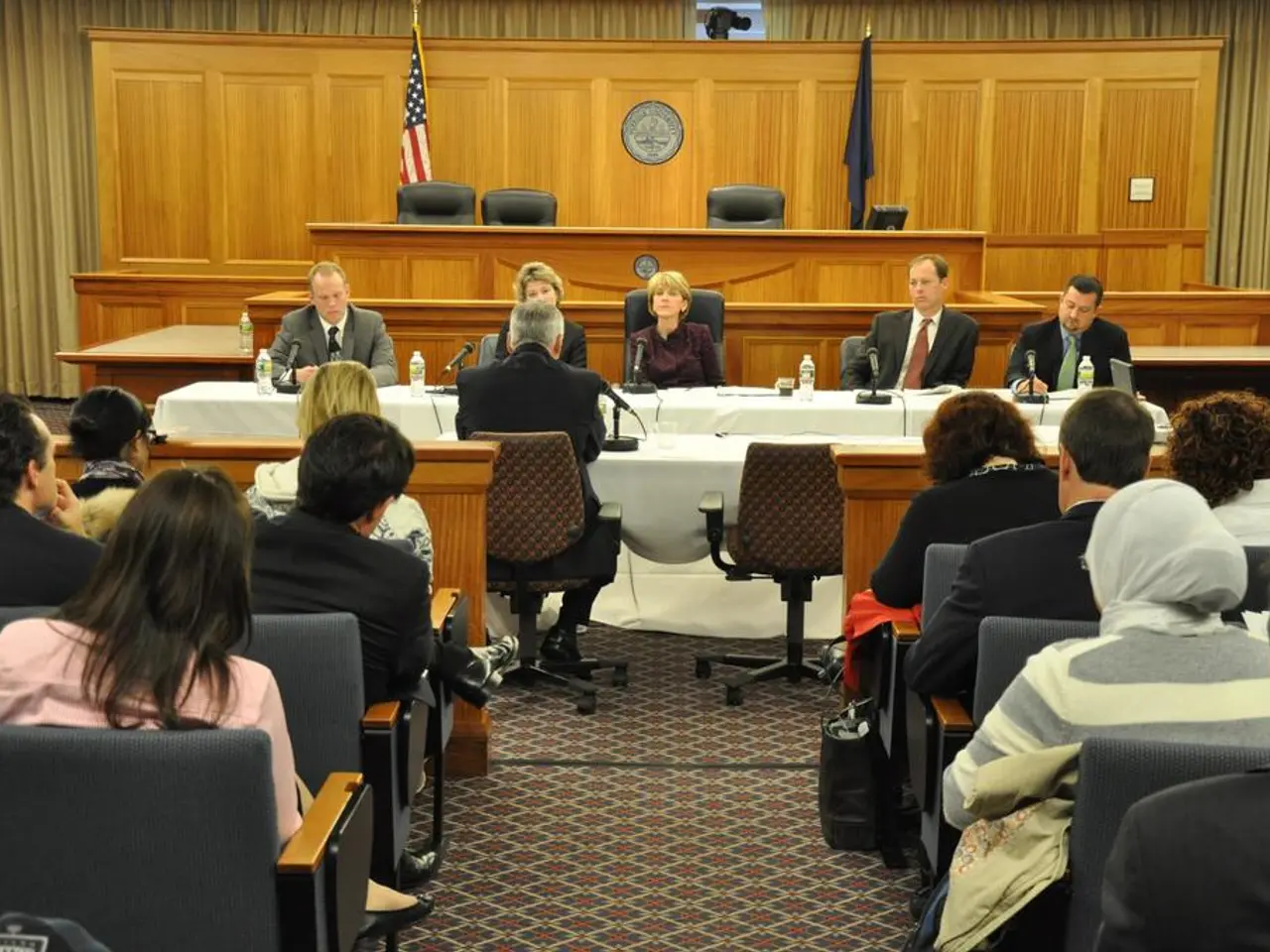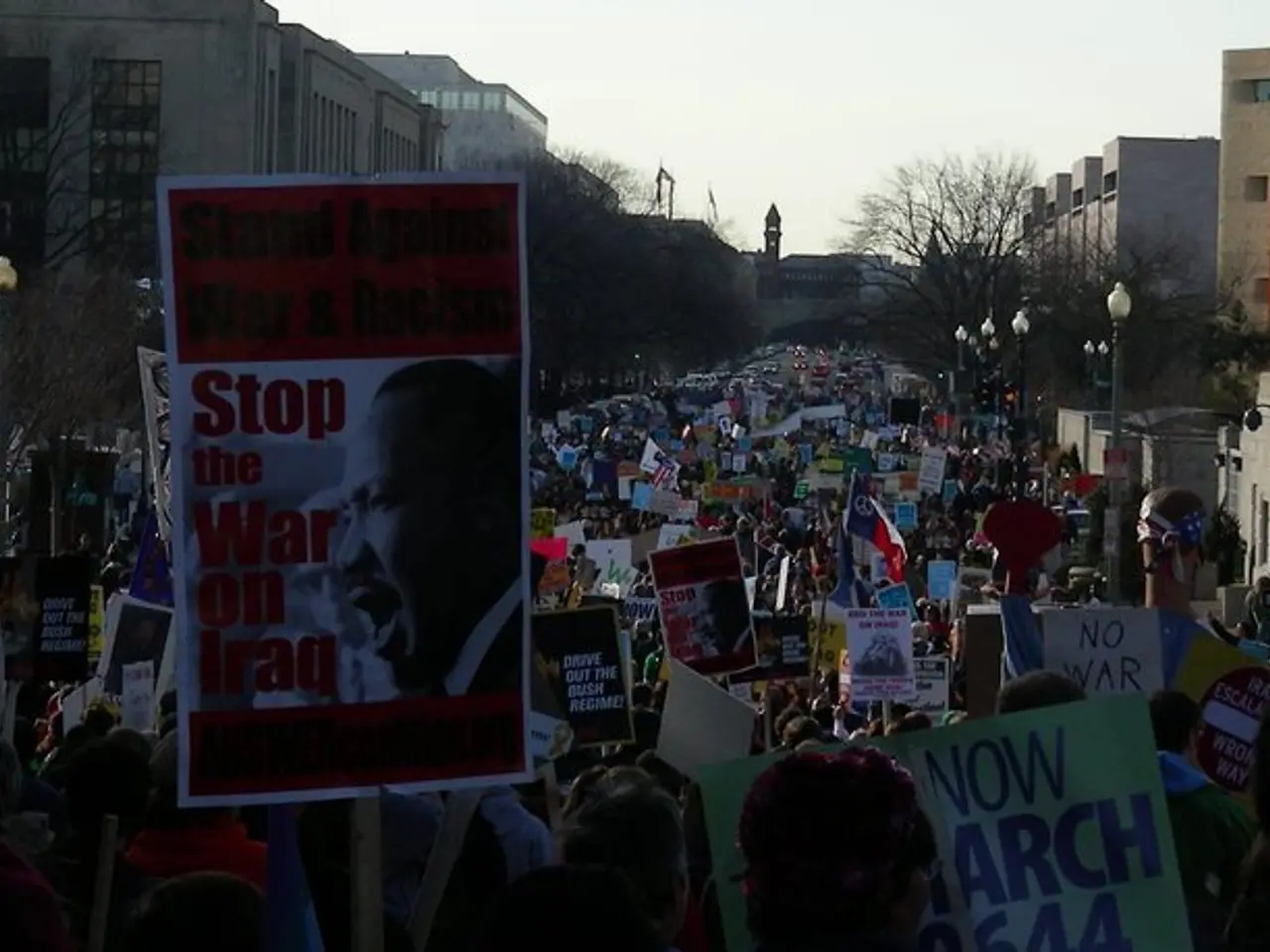Church relinquishes land to California tribe in...
In a groundbreaking act of reparative justice, the Presbytery of San Gabriel, a regional governing body of the Presbyterian Church (USA), officially returned ancestral land to the Gabrieleno Tongva Tribal Council in early August 2025. This historic event marks the first-ever land back transfer by a church in California to an established tribal government.
The returned land, located near the historic San Gabriel Mission and the ancestral village of Siban'gna—sacred to the Tongva people—is a symbolic and material acknowledgment of truth, justice, and healing for the Gabrieleno Tongva. The land, which has been in the possession of the Presbyterian Church for many years, was once the site of a sacred Tongva village later used by the church.
The Gabrieleno Tongva tribe, one of the Indigenous tribes in the San Gabriel Valley, has faced centuries of displacement due to long-term colonization and missionization during California's Spanish mission era. The return of this land serves as a tangible restoration of Tongva land and a broader act of reconciliation addressing colonial injustices perpetuated by religious institutions.
Chief Anthony Morales of the Gabrieleno Tongva Tribal Council emphasized the importance of receiving this land back, especially near a mission that historically symbolizes the colonization of his people. This land return is significant because it is the first documented case of a church in California returning land to a Native tribe and involves land tightly tied to Tongva ancestral heritage and culture.
It is worth noting that the returned land does not seem to have any specific religious or cultural significance to the Presbyterian Church (USA). The San Gabriel Band of Mission Indians, the umbrella organization for several Indigenous tribes in the San Gabriel Valley, has not specified the exact location of the returned land.
This event serves as a move by faith communities to confront their historical roles in colonization and take restorative action. The Presbyterian Church's land return is a pioneering event in California history, setting a precedent for other religious institutions to follow suit in acknowledging and repairing historical harms.
[1] San Gabriel Valley Tribune. (2025, August 5). Presbytery of San Gabriel returns ancestral land to Gabrieleno Tongva tribe. Retrieved from https://www.sgvtribune.com/2025/08/05/presbytery-of-san-gabriel-returns-ancestral-land-to-gabrieleno-tongva-tribe/ [2] Los Angeles Times. (2025, August 6). Presbyterian Church returns ancestral land to Gabrieleno Tongva tribe. Retrieved from https://www.latimes.com/california/story/2025-08-06/presbyterian-church-returns-ancestral-land-to-gabrieleno-tongva-tribe [3] Indian Country Today. (2025, August 7). Presbyterian Church returns ancestral land to Gabrieleno Tongva tribe. Retrieved from https://www.indiancountrytoday.com/news/presbyterian-church-returns-ancestral-land-to-gabrieleno-tongva-tribe-n73772 [4] National Public Radio. (2025, August 8). Presbyterian Church returns ancestral land to Gabrieleno Tongva tribe. Retrieved from https://www.npr.org/2025/08/08/presbyterian-church-returns-ancestral-land-to-gabrieleno-tongva-tribe
- The historic land return by the Presbytery of San Gabriel to the Gabrieleno Tongva Tribal Council has sparked discussions in policy-and-legislation circles, as it highlights the need for religious institutions to address their roles in colonial injustices and take restorative actions.
- The return of ancestral land to the Gabrieleno Tongva by the Presbyterian Church (USA) is a topic of great interest in general-news media, as it marks a significant step in addressing colonial injustices and sets a precedent for other religious institutions to follow.








